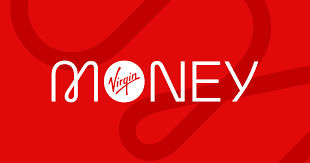For charities, like other organisations, money is the common denominator that forms the basis of almost all organised activity. As well as raising funds for their cause, charities need to be able to process donations efficiently and accurately report their finances if they want to qualify for funding and avoid paying unnecessary tax.
These activities could be hampered if you don't select the right bank account.
Thankfully, there are a number of charity bank accounts designed for the purpose. They provide useful features for charities, such as easy cash and cheque deposits and digital tools to simplify invoicing and reporting. Importantly, they tend to have lower fees than other bank accounts, so you can put more of your funds towards doing good.
Below, you'll find reviews of the best charity bank accounts. They were hand-picked for their strong reputations and useful features. Whether you want an overdraft or free giant cheques, keep reading to find which charity bank account is best for your organisation.
Best Charity Bank Account – Our Top Picks
| Name | Score | Visit | Disclaimer | |
|---|---|---|---|---|
 | 8.0 | Visituk.virginmoney.com | ||
 | 2HSBC | 6.8 | Visitwww.hsbc.com/ | |
 | 6.5 | Visitwww.natwest.com/ |
Best Bank Accounts for Charities Reviewed
Let us tell you more about each of the UK banks on our list and why they deserve a place here:
Best charity bank accounts at a glance
Best overall – Virgin Money
Best for the global network – HSBC
Best for alternative funding – Natwest
Best for extended banking hours – Metro Bank
Best for charity sector knowledge – CAF

The Charities Choice Account provides all the functionality and flexibility that charities need. Free unlimited deposits and withdrawals are available for charities with a turnover under £1 million (those with a higher turnover will need to pay a £6.50 monthly fee).
There are benefits to spending with your charity account debit card—you'll earn 0.35% cashback for your charity, and you'll receive Business Savings discounts at select merchants.
I really appreciate Virgin Money’s digital tools – they’ve made managing our charity’s finances so much simpler. The cashback on card spending is a nice bonus too, helping us make the most of every donation.
Virgin Money's digital tools will also make managing your charity account easier. You can set up multiple account users with different account permissions and take advantage of features such as transaction categorisation, automatic budgeting, invoice management, and smart cash flow projections.
What makes Virgin Money stand out is the range of accounts and services it offers. Unregistered charities can open a Clubs & Societies Current Account. It offers the same benefits as the Charities Choice Account and is free if you make 10 or fewer transactions per month.
Finally, you can build your charity's funds with a choice of savings account. Depending on how long you want to save for and how accessible you want your funds to be, you could opt for a charity instant access account, a variety of notice accounts, or choose your preferred term length for a fixed-term deposit account.
Pros
- Deposits covered by FSCS
- Attractive interest earning options across savings and fixed-term deposit accounts
- Cashback and discounts on debit card spending
- Multiple user permissions help with financial oversight and transparency
Cons
- Costly for accounts that need to pay fees
- Online application process can be slow and sometimes requires follow-up

HSBC’s Charitable Bank Account offers a low-cost option for fulfilling the banking needs of charitable organisations, with a £5 monthly fee, for organisations with an annual turnover not exceeding £6.5 million. Online payments and debit card payments are free. In addition to its branches, customers can make deposits at Post Offices as well.
I chose HSBC for its global reach and flexibility. Being able to deposit at the Post Office is a real time-saver, and the mobile payment system is perfect for our on-the-go fundraising events.
It is suitable for charities that can operate the account with up to four people who are all UK-based. In-branch services mean that charities that still process cash and cheque donations will be well-served.
With partner Global Payments, HSBC equips your charity to accept payments anywhere, at any time. You can accept card and digital payments with the help of your mobile phone, which will act as a portable payment terminal. This is ideal for charities that receive payments at varying locations, including overseas.
Pros
- Wide global network of HSBC branches and services, one of the largest banks in the world.
- The ability to deposit in Post Offices substantially increases access points for customers.
- Suitable for charities operating in multiple currencies
Cons
- No free banking facility, only reduced-price banking. £5 is applicable as a monthly account fee.
- There's a charge for cash and cheque deposits.
- Application process may feel corporate and less personalised for small charities

Existing customers of Natwest are eligible for a community account meant for the banking needs of charities, clubs, and societies.
Account holders get access to online and phone banking channels, as well as the mobile banking app, through which banking can be done 24x7, from anywhere. Customers get a chequebook as well as a paying-in book.
The contactless debit card can be set up on your phone so that you can pay with your phone using Apple Pay or Google Pay. You'll also be able to authorise up to four signatories on the account and receive spending alerts.
As a smaller charity, the free account with NatWest really helped us stay within budget. I also found their alternative funding through Social & Community Capital a unique and valuable support system.
Natwest funds a charity known as Social & Community Capital, whose purpose is to help charities and community enterprises flourish. It offers organisations an alternative funding option, many of whom may not qualify for traditional loans. Access to sector experts is also provided.
Charities and community groups with an annual turnover below £100,000 can apply for free. Other perks of the NatWest account include free access to the accounting software FreeAgent and the ability to digitally co-sign payments together through Bankline for Communities.
Pros
- Alternative funding options for charities through Social & Community Capital, a charity founded for the purpose
- Free for organisations with an annual turnover below £100,000
- Free dual authorisation feature through Bankline for Communities
- Good integration with Apple Pay and Google Pay
Cons
- Non-fee banking threshold is quite low at £100,000
- Customer service wait times can be long during peak hours

Metro Bank’s Community Current Account offers 200 free transactions a month, one of the highest in the category. Any additional transactions cost £0.30 each. Cash deposits and withdrawals are free up to £10,000 per month.
It offers tailored borrowing solutions along with a dedicated relationship manager. In addition, it has a 24/7 UK-based customer support team. You can also get a free review in the form of a Charity Banking Analysis designed to help you streamline your systems and processes.
Metro Bank’s long opening hours and 24/7 support were game-changers for our busy schedule. The free giant cheque service and high transaction limit are brilliant for fundraising campaigns and event days.
Metro Bank provides the use of a store-based coin-counting machine for free, to help you process collections and donations from charity events. It even provides giant cheques for free, a useful prop for many charitable organisations which can incur hefty costs.
If your organisation needs more than a current account, you can also explore Metro Bank's Community Fixed Term Deposit Account and Community Instant Access Deposit Account.
Pros
- 200 free transactions a month
- Free giant cheques
- Stores open seven days from early till late
- In-branch coin counting is ideal for cash-heavy fundraising events
Cons
- Free facilities limited to maximum annual turnover under £250,000
- Online banking features are less advanced than some competitors
Owned by CAF (Charities Aid Foundation), which connects charities with funds, CAF Bank helps charities to manage their finances. With 14,000 charities banking with CAF, it’s safe to say that the institution has a solid industry reputation.
The current account pays 0.20% interest, helping you turn idle funds into even more money for your cause. It offers notice savings and fixed-term deposit accounts through partnerships with Shawbrook Bank and Scottish Widows. It even offers investment products and free consultations to help you get started.
I like CAF Bank because they truly understand the charity sector. Their advice and interest-paying current account have helped us plan better for the future, and the ability to use partner banks for deposits is handy too.
Customers can access physical bank services such as for cash and cheques through HSBC and RBS branches. Cheques can also be deposited at Post Offices.
A Mastercard Business Card is issued free of charge to facilitate transactions. It also permits free withdrawals and you can pay in up to £2,000 per month for free.
Pros
- Current account earns interest
- Knowledge about charitable work and non-profits
- Significant free allowance for paying in – £2,000 in cash and 20 cheque deposits per month.
- Free consultations provide strategic financial advice
Cons
- Interest rates on savings accounts are lower than other banks
- Limited mobile banking app functionality
How We Rate & Review the Best Charity Accounts
Most banks offer charity accounts as a part of their business banking services, with some add-ons depending on the provider.
To ensure we selected the most appropriate banks for charities, the criteria we prioritised are:
Account opening and maintenance fees,
Safety of money and regulatory coverage,
Availability of overdraft,
Transaction fees and charges,
Branch network and global reach,
Additional account features and facilities,
Cards offered and digital services,
Experience with charities.
How Do Charity Bank Accounts Work?
Charity bank accounts work in the same way as accounts of other organisations. In fact, most banks offer a charity bank account as a part of their business account offering.
Opening the right charity bank account is one of the more important decisions for a charity as keeping their money safe and available for their cause is a priority. It is also a way of assuring donors that their money is in safe hands, which, in turn, could trigger more donations and funds for the charity.
Specific-purpose aid needs to be tracked by charities separately from general-purpose gifts. Then there are endowments where only the earnings are spent while the principal stays intact. Charities also need to ensure they are on the right side of tax laws since some of their activities may not directly contribute to their stated objective but instead raise money to eventually feed back into the organisation. Additionally, donors to charities also get tax benefits.
Having a specialised charity account helps in monitoring such transactions in a transparent manner.
What Can You Do With a Charity Bank Account in the UK?
A charity bank account can do everything that the bank account of any organisation can, which includes:
✔️ Make and receive payments,
✔️ Hold funds in the account,
✔️ Place the money in interest-earning accounts such as savings and fixed-term deposits,
✔️ Apply for overdrafts to meet funding gaps.
Having a dedicated charity bank account can also make the process of applying for Gift Aid easier and simpler.
There are no specific limitations on charity bank accounts over and above those for business accounts.
Are your charity’s funds protected?
The Financial Services Compensation Scheme protects charity funds deposited with banks and building societies authorised by the Prudential Regulation Authority for up to £85,000 per authorised institution. This means how your charity distributes its funds can affect the amount of compensation it's entitled to.
Please note that some banks and building societies are part of the same banking group, such as NatWest and Royal Bank of Scotland, so they share a banking licence – and FSCS protection is £85,000 per person, per banking license.
Do Charities Pay Tax?
As mentioned earlier, charities don’t have to pay tax on most of their income. And when they do, it’s at a lower rate than for-profit businesses and individuals. If you do find a charity current account that pays interest, or opt for a savings account, you can get interest tax-free by showing the bank your letter of recognition you obtain from HM Revenue & Customs. This document confirms that you run a registered charity.
Note that you can also claim an extra 25p for every pound donated using Gift Aid.
What is Gift Aid?
Charities can claim Gift Aid on donations from individuals. In order to qualify, the donor must:
Have paid income tax or capital gains tax in that tax year that is worth at least as much as you want to claim.
Make a Gift Aid declaration that gives you permission to claim it.
And you must be a recognised charity.
Charity Accounts: Common Charges
Though most charity bank accounts are free to run, some, most notably HSBC, may come with a monthly charge of around £5 – but more often than not, there’s no fee as long as the charity meets certain requirements on the size of its balance and annual turnover.
Other banking charges may include withdrawal and depositing fees and overnight interest. That being said, some banks offer reduced charges for charity accounts and generally have high thresholds until fees kick in.
Best charity bank accounts – a comparison of costs
Monthly Fee | Cash Withdrawal Fee & Limit | Deposit Fee & Limit | Overdraft Interest | |
|---|---|---|---|---|
Virgin Money Charity Choice | Free for those with less than £1 million in annual turnover | Free (£700 daily limit) | Free (£10,000 per day) | Arranged overdrafts are negotiable, 33.51% for unarranged |
Natwest Community Account | Free for those with less than £100,000 turnover | £0.70 per £100 | £0.70 per £100 | 15% per annum |
HSBC Charitable Bank Account | £5 | Free | Cash deposit – 0.40%. Cheque deposit – 40p | N/A |
Metro Bank Community Current Account | Free for those with less than £250,000 in annual turnover | Free for up to £10,000, £1 per £100 after | Free for up to £10,000, £1 per £100 after | 25% EAR |
CAF Bank Cash Account | £5 | Free | Free up to £2,000 cash and 20 cheques | Up to 7% over the BoE base rate |
Earning Interest on a Charity Bank Account
Charity bank current accounts don’t usually pay interest in credit – if your charity holds a substantial amount of cash and you’d like to earn interest, it pays to shop for charity savings accounts with competitive interest rates. You could deposit money the charity is seeking to hold for a long period in a savings account, and use the current account for everyday expenses and incoming transactions.
How To Sign Up To A Charity Account in the UK
Prior preparation is recommended. It could take time to collect the requirements specified by the target bank and for the bank to process them once they have been submitted.
Identifying the bank is a significant step, so don’t hesitate to shop around. It is a good idea to understand your own banking requirements so that they can be matched to what is being offered.
Step 1: Check Your Eligibility
Step 2: Decide Who Will Run the Account
Step 3: Get Your Documents Ready
FAQs
What is the difference between a not-for-profit and a charity in the UK?
What is the advantage of opening a charity bank account?
I wish to make a donation to a charity. They have asked me to deposit the money in their bank account. Can the bank confirm to me if it is really a charity?
How many people can operate our bank account?
Conclusion
Choosing the best charity bank account depends on your organisation’s size, income, and financial needs. Factors such as transaction volume, digital tools, interest on balances, and specialist support can greatly influence your choice. A small, local charity with limited monthly activity might prioritise free banking and minimal fees, while a larger organisation could benefit more from robust digital features, tailored financial advice, or access to alternative funding.
Based on our review, Virgin Money stands out as the top choice overall. It offers excellent value, particularly for charities with an annual turnover under £1 million, thanks to its fee-free structure. The account includes digital tools that streamline financial management, from budgeting to invoice handling, and even offers cashback on debit card spending—helping your charity earn as it spends. Furthermore, its inclusive approach supports both registered and unregistered charities with suitable account options. Virgin Money also provides access to competitive savings and fixed-term deposit accounts, allowing your charity to grow its funds wisely.
Overall, Virgin Money strikes an ideal balance between cost, features, and flexibility—making it an outstanding choice for most UK-based charitable organisations.





.jpg)
.jpg)




